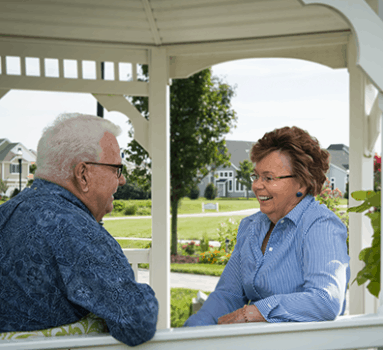Does Older Always Mean Wiser? Experts Weigh In
November 10, 2022
Does Older Always Mean Wiser?
There is a long-standing, widespread presumption that wisdom comes with age and, therefore, that older people are wiser than younger ones. But is it true?
Many doctors, scientists, and scholars have examined this question and posited their own answers. In a piece in the AARP’s Senior Planet, writer Erica Manfred spoke with three such experts; read on to discover the profound insight she gained.
General wisdom vs. personal wisdom
According to Dr. Ursula Staudinger, lifespan psychologist and director of the Columbia Aging Center, there are two types of wisdom: general and personal.
General wisdom is the ability to provide others with good advice, whereas personal wisdom is the ability to gain an insightful perspective on the perceived successes and failures of your own life. The former is a more externalized type of wisdom while the latter is more internalized, and it is possible to possess either, both, or neither.
But what are the exact criteria of wisdom?
The first researcher to examine the true meaning of wisdom and the possible impacts of aging, Dr. Virginia Clayton, geriatric neuropsychologist, determined that there are three main components of wisdom:
- Knowledge: understanding facts and information
- Reflection: gaining insight from that knowledge
- Compassion: utilizing that insight to feel and exhibit empathy for others
What is the Wisdom Test?
The Wisdom Test, developed by University of Florida sociology professor Monica Ardelt, aims to measure people’s wisdom by focusing on the “reflection” component of Dr. Clayton’s model.
Ardelt sought to understand why certain seniors are resilient while others are less so, and why certain people bounce back from setbacks while others fall victim to depression. Her research revealed that it wasn’t resilience that led to wisdom, but rather coping skills.
Wisdom, she found, was a matter of recognizing the temporary nature of hardships and crises and the ability to put them into perspective. The Wisdom Test’s 39 questions, when posed to a sample of both younger and older participants, revealed that age does not automatically translate into wisdom.
Take the Wisdom Test here and see how you rate on the scale.
Does wisdom in fact decline with age?
Returning to the work of Staudinger, we learn that not only may our tacit presumptions about age and wisdom be wrong, but the truth may actually be the exact opposite.
Her research suggests younger people can be personally wise too and that older people can become personally less wise as they age. The reason she cites is that as they enter their twilight years, older people tend to try to rationalize and make peace with their life as they reflect on their past.
This, Staudinger suggests, interferes with personal wisdom, which requires reconciling the opposing forces of positive and negative choices made throughout one’s life. To put it concisely: positive thinking interferes with objectivity.
How to become wiser as you age
In Psychology Today, Professor Adam Grant, PhD, offers six ways to grow wise as you age:
- Don’t wait to start examining your past.
- See things not in black and white but in shades of gray.
- Find a balance between your own needs and those of others.
- Challenge generally accepted norms.
- Don’t judge others; rather, aim to understand.
- Focus on purpose instead of pleasure.
In short, as you age it’s wise to continue seeking out new experiences that allow you to face unexpected challenges and learn from them.
Are you seeking a springboard to new discoveries where you can decouple from stress and simply soak in the beauty of each new day? Our senior living community makes that easy. Contact us to schedule a visit today.




